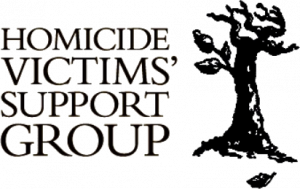Having just been confronted with the terrible loss of your loved one, having to organise necessities and the funeral is the furthest thing from your mind.
We hope that the information below will ease this burden somewhat and provide you with some guidance.
CRIME SCENE/ FORENSIC CLEANING
Traumatic incident scenes require specialist cleaning as there may be exposure to bodily fluids, offensive odours, insect infestations, bio-hazardous material and finger print powder.
A risk exists of contamination from possible pathogens such as HIV, hepatitis, meningitis etc.
Therefore cleaning requires a high degree of protection for personnel, unique skills and an understanding of the situation and adherence to strict safety and materials handling procedures in order to neutralise these risks and restore scenes to a safe, pleasant and habitable environment.
It is important to engage a professional and reputable service delivery company to handle this for you.
If eligible, costs can be claimed through Victim Services.
OBTAINING THE DEATH CERTIFICATE
As your loved one is a victim of homicide, an interim death certificate will be issued by the coroner, you will receive it via your funeral director as a part of their service.
It can generally take a week or two to arrive.
WHO YOU NEED TO NOTIFY OF THE DEATH?
A number of people and organisations need to be notified about the death; this helps to finalise the person’s affairs and makes sure you can get the help and information you need.
Before you start making contact it may be valuable to see if you are able to find a folder, filing cabinet, document case where the deceased may have stored such records and information.
You can use these records to find out reference numbers, client numbers etc.
Some useful documents to look for are:
- A will
- Birth and Marriage certificates
- Taxation records
- Passport
- Insurance policies
- Bank documents
- Superannuation Statements
- Mortgage and Loan Documents
- Bills (see below in detail)
As helpful guide you may need to notify, either by phone or in writing, some or all of the following people and organisations:
- Department of Human Services
- Superannuation Fund
- Solicitor and/or public trustee
- Accountant
- Financial institutions and loan companies
- Banks/ credit card providers
- Building Societies
- Credit Unions
- Employer
- Australian Tax Office
- Trade unions or professional associations
- Department of Veterans Affairs
- Post office
- Electoral office
- Insurance Companies
- Life
- Accident
- Home and contents
- Vehicle
- Health fund
- Doctor, specialist, hospital
- Dentist
- Medicare
- Chemist
- Roads and Traffic Authority (RTA)
- Clubs, organisations and associations
- Church or religious organisation
- Household help, caretaker services, home nursing services, meal delivery
- Home appliance rental
- Home Medical Aids rental company
- School, Tafe, college university
- Telephone company
- Electricity company
- Gas company
FINANCIAL MATTERS
You may be eligible for some financial assistance after a loved one has died from Centrelink/Human Services.
They have a booklet setting out the assistance measures available, which can be downloaded.
Relatives and friends do not have to pay the debts of the person who has died unless the debts are in joint names. Debts can be paid from the estate. A death certificate will be required.
There are a range of government and community organisations that provide support services and useful information you may find helpful.
If you would like assistance in working out a budget, managing your financial affairs or you are in financial trouble, you can speak to a financial counsellor by contacting any of the following:
- Money Smart – is a website that has information to help you make the most of your money – they also have a section on “losing your partner”.
- Financial Counselling Australia – is the peak body for financial counsellors in Australia and provides information about how financial counsellors can support and advocate for people experiencing financial difficulty.
- Welfare Rights Centre
- Rural Financial Counselling
READING THE WILL
The will is a legal document that sets out how the deceased’s belongings are to be distributed after their death. It may take into account:
- The likely value of their estate
- Special funeral arrangements
- Prepaid cemetery plots
- Beneficiaries and special gifts
- Who is appointed as executor
The Executor of the Will is responsible for distributing the person’s assets to the people named in the Will. This happens after any debts are paid.
If the person has not left a Will, the estate is shared under a formula set by law. If there are no close relatives there is a chance the estate could be paid to a state or territory government.
If you think there was a prepaid funeral or a funeral bond, but cannot find the paper work, it may have been left with someone such as a solicitor or the Executor of the Will.
REMOVING NAMES FROM MAILING LISTS
To register the details, contact the Association for Data-driven Marketing and Advertising.
SOCIAL MEDIA ACCOUNTS
Social media networks usually have procedures in place to deal with the accounts of deceased members.
As these procedures can differ between networks the best thing to do is to search the ‘help’ section of the network in question if you wish to close an account.
OTHER SERVICES
Victim Services
www.victimsservices.justice.nsw.gov.au
(02) 8688 5511
Association for Data-driven Marketing & Advertising
www.adma.com.au
(02) 9277 5400
Human Services / Centrelink / Medicare
www.humanservices.gov.au
132 300
Births Deaths & Marriages
www.bdm.nsw.gov.au
137788
Money Smart
www.moneysmart.gov.au
1300 300 630
Financial Counselling Australia
www.fcan.com.au
1300 914 408
Welfare Rights Centre
www.welfarerights.org.au
(02) 9211 5300
Rural Financial Counselling Services
www.agriculture.gov.au
1800 686 175
Australian Taxation Office
www.ato.gov.au
132861
Roads & Traffic Authority
www.myrta.com
13 22 13
